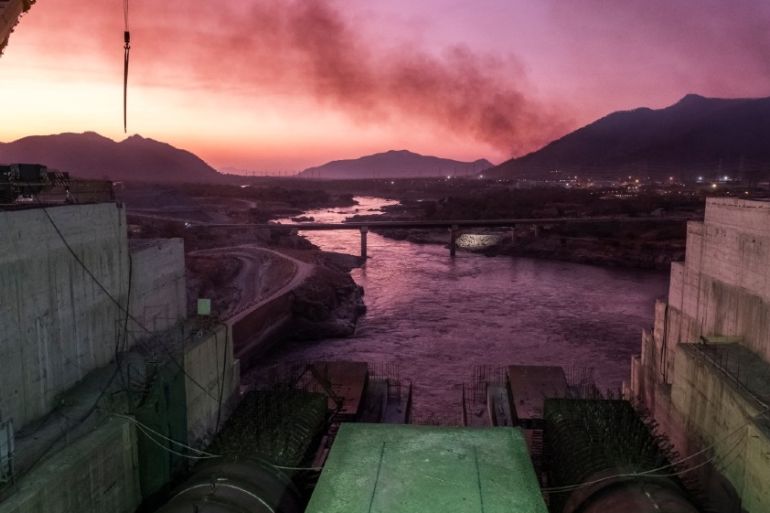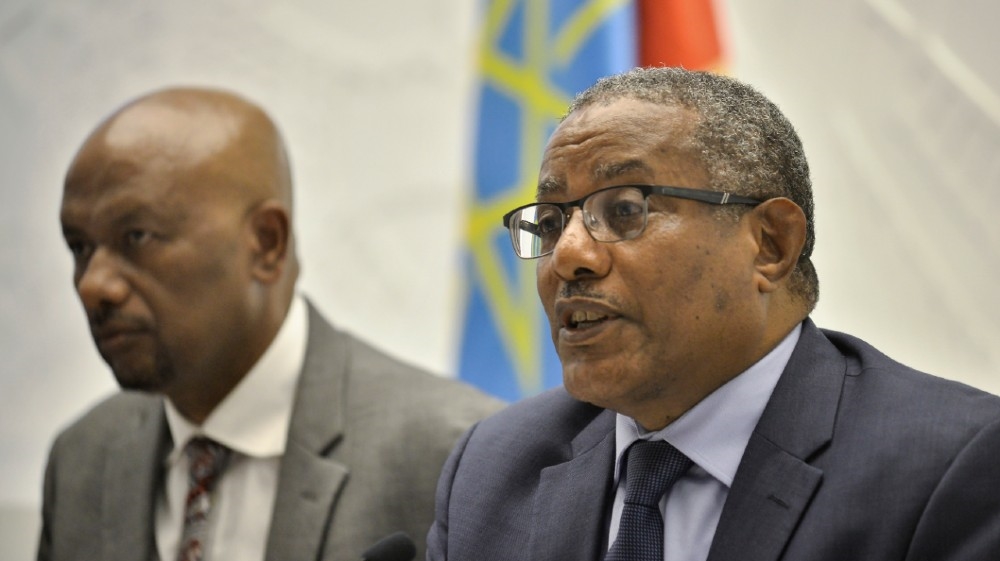Sudan: Millions at risk if Ethiopia fills mega dam without deal
Khartoum sends letter to UN Security Council after talks also including Addis Ababa and Cairo failed to produce a deal.

Sudan has sent a letter to the United Nations Security Council (UNSC) warning the lives of millions of people will be endangered if Ethiopia moves ahead with its plan to fill a reservoir on the Blue Nile before an agreement has been reached.
Ethiopia’s unilateral action would “compromise the safety of Sudan’s Roseires Dam and thus subject millions of people living downstream to great risk”, Sudan’s water ministry said in a statement on Thursday, adding it had sent a letter to the UN body.
Tensions have been running high between the two countries and Egypt after recent talks failed to produce a deal on the filling and operation of the Grand Ethiopian Renaissance Dam (GERD), a giant hydroelectric project built near Ethiopia’s border with Sudan and the centrepiece in Addis Ababa’s bid to become Africa’s biggest power exporter.
Egypt, which is almost entirely dependent on the Nile for its freshwater supplies, is anxious to secure a legally binding deal that would guarantee minimum flows and a mechanism for resolving disputes before the dam starts operating.
Al Jazeera’s Hiba Morgan, reporting from Sudan’s capital, Khartoum, said nearly all technical issues have been resolved after several rounds of on-and-off negotiations.
Yet, legal issues remain unresolved, including whether the agreement will be binding under international law. During the latest round of talks last week, Sudanese negotiator Hisham Abdalla said Ethiopia had suggested “the deal to be a guiding one that could be modified or cancelled”, adding that this was “a very serious situation”.
Sudan wants to ensure water releases from the Blue Nile dam to be coordinated with water levels at its Roseires Dam, some 100km (62 miles) from the GERD.
Addis Ababa remains undeterred from starting to fill the dam on the Blue Nile next month regardless of a deal being reached.
“It seems like the political will is not equally shared between the three sides and that is why they cannot come back together to the negotiating table to resume talks,” Morgan said.

On Sunday, Sudan’s Water Resources Minister Yasser Abbas said it was important Ethiopia shared information about water supplied from the dam, otherwise “we will not know the amount of water discharged from the Renaissance Dam, which might cause flooding and the Roseires dam itself will be at risk” of being overwhelmed.
The ministry warned the remaining time for the countries to agree is “tight and critical”.
It also urged the UNSC to “invite leaders of the three countries to show political will and commitment to resolve the few remaining issues”. Khartoum recently proposed breaking the continuing deadlock by raising the status of the talks to prime ministerial level.
Cairo, which views the hydroelectric barrage as an existential threat, itself appealed on Friday
for the UNSC to intervene in the dispute, citing Addis Ababa’s “non-positive stances”.
Egypt fears the dam would severely cut its Nile water supply, which provides nearly 97 percent of the country’s freshwater needs.
Ethiopia, from its side, says the project is indispensable for its development, and insists downstream countries’ water supply will be unaffected.